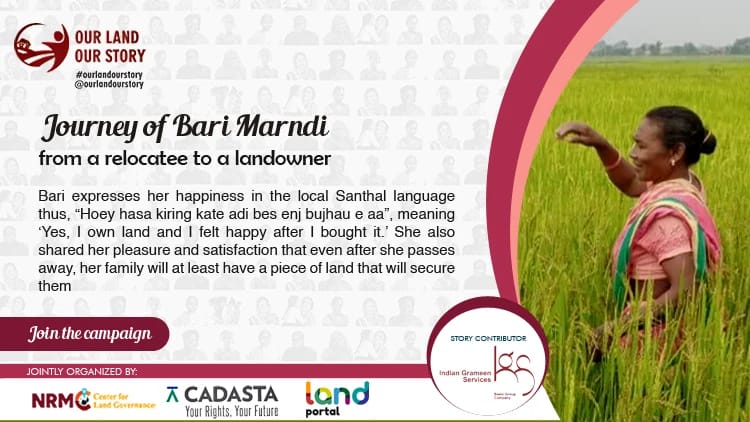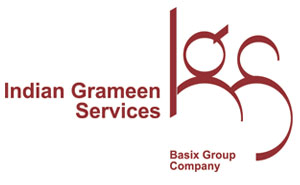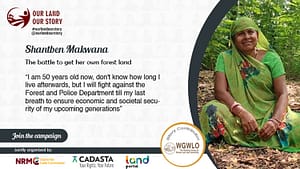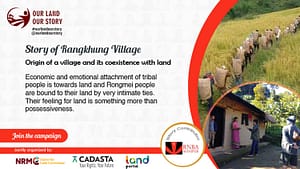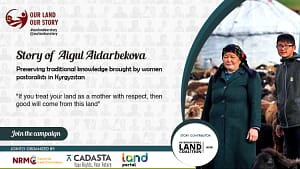
Journey of Bari Marndi, from a relocatee to a landowner
Bari Marndi has aptly proved the saying, “Farming isn’t just a job, it’s a way of life”. Daughter of a farmer, Fakir Marndi, Bari and her family used to stay in Kabatghai, a village inside the core of Similipal Tiger Reserve (STR) in Mayurbhanj district of Odisha. She farmed an area of 2.5 acres and collected and sold Non-Timber Forest Produce (NTFP) as part of her livelihood activities. In the year 2016, the STR authorities led by the Field Director with support from the district administration relocated Kabatghai settlement to Manada village in Jashipur block, as per the voluntary Rehabilitation and Resettlement (R&R) Policy under The National Tiger Conservation Authority (NTCA) guidelines.
As part of the compensatory settlement, Bari Marndi and 46 other households of Kabatghai received a Biju Pacca Ghar built on a 0.09-acre plot under the State Rural Housing Scheme and an amount of INR 10 lakh as the R&R package. Indian Grameen Services (IGS), a not-for-profit organization (www.igsindia.org.in) facilitated the rebuilding of livelihoods of these households in their new location, by ensuring the relocated households’ access to social security schemes and entitlements; and convergence of all related line departments for timely execution of individual and community infrastructure, as required for ensuring a quality life for them.
Bari, being a farmer, wished to continue farming as her main occupation at Manada, their new home too, but buying land seemed daunting to her. Managing the compensation amount sagaciously and acquiring livelihood assets like land with legally enforceable rights was an entirely new area for her, given the traditional rights and usufructs-based access, which the community used to enjoy while living in forests for generations. But as goes the cliché –“Where there is a will, there is a way”, Bari first started cultivating 0.22 acres of land of a medium farmer of Naona village as a sharecropper, handing over 1/3rd of the produce like paddy to the landowner as a part of a verbal agreement in front of the fellow villagers. After cultivating for two seasons, she acquired the same patch of land on mortgage from the landowner for Rs.8,000, for meeting some medical emergency requirements. She grew paddy adopting the System of Rice Intensification (SRI) on that land for two years consecutively, with handholding support from IGS. IGS also helped Bari and other villagers in enrolling for Aadhar Card, Job Card, Voter ID Card, and PAN Card at the new location, so that they have the requisite credentials to open bank accounts and access various government schemes.
In 2019, the landowner offered to sell 0.82 acres of land to Bari to meet some of his emergency cash requirements. Again, Bari received suggestions from IGS and put in an application to the Sub-Collector for release of INR 2.7 lakh from the compensation amount held in her joint account with the Sub-Collector as per R&R guidelines. On receiving the application, the Sub-Collector discussed with IGS and suggested getting a sale agreement (clearly mentioning the plot number, name of the buyer and seller, sale amount, and size of the land) signed between Bari and the landowner in front of two witnesses from the village where the land was located. The agreement signing process was overseen by the Tehsildar of Jashipur Block. The Sub-Collector, after receiving a green signal from the Tehsildar, approved credit of the requisite amount to Bari Marandi’s account.
Bari is now able to produce 20 quintals of paddy every season and that meets her household consumption requirements and there remains surplus for sale, she also cultivates pulses in the Rabi season, earning a net surplus of Rs 12,000-15,000 per year from farming.
Bari expresses her happiness in Ol Chiki, the local Santhal language thus, “Hoey hasa kiring kate adi bes enj bujhau e aa”, meaning ‘Yes, I own land and I felt happy after I bought it.’ She also shared her pleasure and satisfaction that even after she passes away, her family will at least have a piece of land that will secure them. Bari was the pioneer land-owner among relocated households of Kabatghai and her grit and sense of purpose have shown a way to other households in the community, men and women alike. The challenges faced and successfully surmounted are coming in handy for other villagers to get acquainted with the process of buying and cultivating their land.
Story Contributor:

